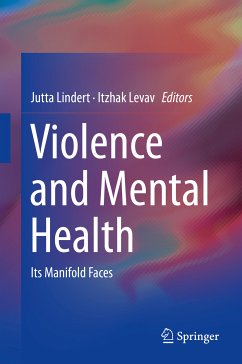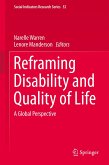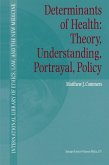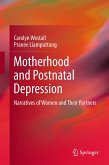The work moves on to tackle violence at the international-and intranational-level before zeroing in on the nature of violence in communities such as villages or city districts. It also examines the results of violence in the family. Each type of violence has distinct effects on mental health, and in each chapter specific groups are explored in depth to demonstrate the heterogeneity of violence as well as the diversity of its outcomes in the realm of public mental health. Finally, the book addresses the notion of 'undoing violence' by detailing case studies of effective interventions and prevention occurring in countries, communities and families. These cases give us pause to reflect on the nature of resilience and dignity in the context of violence and mental health.
All the chapters have been written by
leading authors in the field and provide a state-of-the-art perspective. The authors, from different fields of expertise, facilitate interdisciplinary and international insights into the impact of violence on mental health.
Dieser Download kann aus rechtlichen Gründen nur mit Rechnungsadresse in A, B, BG, CY, CZ, D, DK, EW, E, FIN, F, GR, HR, H, IRL, I, LT, L, LR, M, NL, PL, P, R, S, SLO, SK ausgeliefert werden.
"Violence is the most inhuman challenge to the human social fabric and to the psychological sciences: their failures are more frequent than their victories. This book provides an outstanding scientific framework to the analysis and the possible answers to structural violence, to the social structures that harm people and to interpersonal violence, when individuals harm other individuals."
Benedetto Saraceno, Professor of Global Health at the University Nova of Lisbon, Lisbon, Portugal.
"It is the responsibility
of our societies to ensure health
and wellbeing for all their members. To achieve these aims, we urgently need the
commitment from our societies to the prevention of all forms of violence. This
publication presents new knowledge and evidence that support clear action that
societies must take to build a legacy of health and development throughout the
life course."
Dr. Matilde Maddaleno, PAHO/World Health Organization, Washington DC.
"For those interested in the specific issue of the bidirectional link between mental illness and violence, this book is a good starting point. While the social stereotype of mental illness is of a person who is likely to be violent, this book reminds us that the reality is complex. Mental illness is a frequent outcome for thos who have experienced violence and those with with mental illness are also more likely to be victims of violence. However, it need not be so. There are numerous opportunities for intervention to improve mental health outcomes for those who have experienced violence. This books reminds us we can do better."
Dr. Soumithra Pathare, India Law Society, Pune, India









